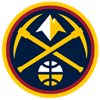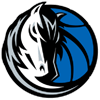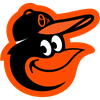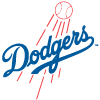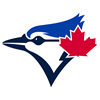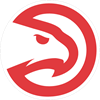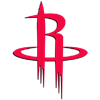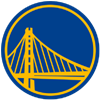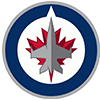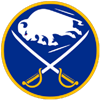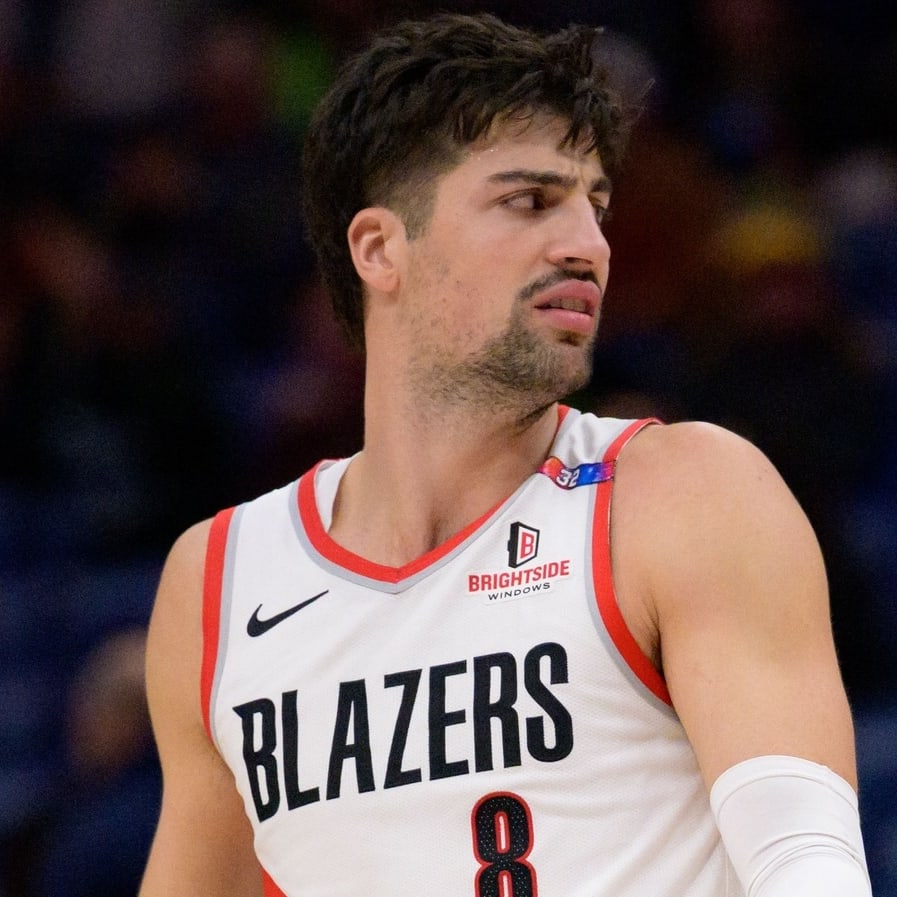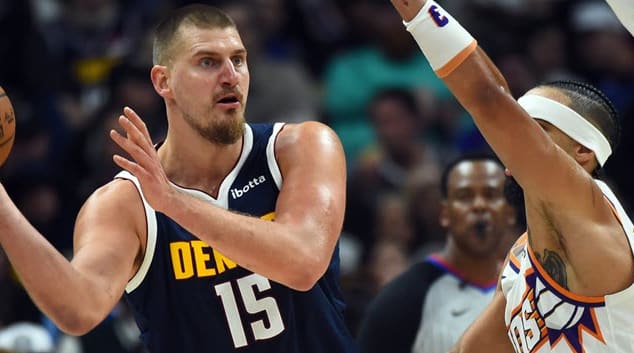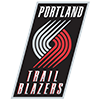 STATE OF THE FRANCHISE
STATE OF THE FRANCHISE
Entering the 2013-14 campaign, the Blazers' sole bright spots were stalwart power forward LaMarcus Aldridge and the spectacular initial season of Damian Lillard, who captured Rookie of the Year honors on a squad heavily reliant upon it's starting five. After landing veteran point guard Mo Williams via free agency and Robin Lopez in a trade with New Orleans, the organization solidified two weaknesses − sixth man and starting center, respectively − and the upgrades reaped immediate dividends, as the team reeled off 17 victories in the first 20 games and improved their record by 21 wins from the previous year, finishing with a 54-28 record. Amazingly, coach Terry Stotts required just two lineups on the season, with Dorell Wright filling in for Aldridge during the latter's two stays on the sideline for a combined 13 contests. In the end, the team accomplished two significant milestones: its first postseason berth since 2010-11, and emerging victorious in a playoff series for the first time since 2000. The six-game decision over the favored Rockets was punctuated by a Lillard game-winning three-pointer with 0.9 seconds remaining, confirming his status as a budding superstar.
Speaking of treys, Portland's playing style follows the perimeter-based approach dominating the league in recent years, which is aided by the fact that they feature two of the NBA's five players who knocked down more than 200 three-pointers last season. The offensive demon, Lillard cleared 218 three-pointers, and two-guard Wesley Matthews completed their backcourt union by succeeding on 201 from beyond the arc. In total, the Blazers drilled 770 triples, good for fourth-most in the league, supplementing Aldridge's mid-range game from the elbow nicely, where he takes 46.8 percent of his shots. Meanwhile, Lopez's addition aided a defensive revival, relatively speaking, from the Blazers being a bottom-six unit to forging them into a middle-tier defensive squad, resulting in a net decrease of nearly two points allowed per 100 possessions (1.97, to be precise). Rounding out the starters is the do-everything Nicolas Batum, who provided stability while stuffing the stat sheet on both ends of the court en route to a career-high 7.5 rebounds and 5.1 assists per tilt last year.
Once again, the Blazers' core five will supply much of the heavy lifting in the upcoming slate, but further renovation to the bench is expected to lift them to the upper tier of the Western Conference next to the likes of the Spurs, the Thunder, and the Clippers. Despite the loss of Williams after utilizing the opt-out clause in his contract this summer, Portland will ultimately cope behind Lillard with a combination of 2013 first-round pick CJ McCollum and free-agent addition Steve Blake. Moreover, a combination of youthful influences and added experience should shore up the wing (2012 second-rounder Will Barton) and frontcourt (free-agent pickup Chris Kaman) in kind. If everything follows the script outlined by Stotts and general manager Neil Olshey, the requisite jump to the conference's elite could very well come to pass.
PLAYING TIME DISTRIBUTION
At point guard, Damian Lillard will dominate the workload, ringing up 35-to-37 minutes per contest. After Lillard, the remaining playing time will filter to Steve Blake and CJ McCollum, who should both carve out some run at shooting guard as well. While the duo may not play on a nightly basis, a range of 15-to-20 minutes per game for both isn't out of the question. Most of the run next to Lillard will be scooped up by the ironman Wesley Matthews, with approximately 32-to-34 minutes per night landing on his doorstep. Another steady hand, Nicolas Batum, should average about 36 minutes at the three, which he garnered last season, and Dorell Wright is present to spell the Frenchman to the tune of 12-to-15 minutes per tilt. To round out the wing, Will Barton is expected to handle a slightly smaller allotment than Wright, and the third-year pro may find difficulty notching consistent minutes. Finally, in the frontcourt, LaMarcus Aldridge (36-minute range) and Robin Lopez (30-to-32 minutes per game) will dominate the looks, while Chris Kaman, Thomas Robinson, and Joel Freeland all reside in the mid-teens.
Player | PG | SG | SF | PF | C |
Lillard (37) | 37 | ||||
Blake52 (16) | 10 | 5 | |||
McCollum62 (22) | 10 | 10 | |||
Matthews81 (34) | 32 | 2 | |||
Barton53 (13) | 3 | 10 | |||
Crabbe15 (8) | |||||
Batum76 (36) | 36 | ||||
Wright62 (15) | 13 | 2 | |||
Claver24 (9) | |||||
Aldridge73 (36) | 34 | 2 | |||
Robinson75 (16) | 15 | ||||
Freeland55 (13) | 10 | 3 | |||
Lopez (32) | 32 | ||||
Kaman55 (17) | 17 | ||||
Leonard30 (4) |
PLAYER OUTLOOKS
Centers
Robin Lopez: After arriving in Portland last offseason via a three-team deal, Lopez turned in the most prolific season of his six-year career, averaging 11.1 points (on 55-percent shooting), 8.5 rebounds, 1.7 blocks, and 0.9 assists in 32 minutes. The exchange appears to have worked in the Blazers' favor, at least initially, as Lopez's placement in the starting lineup allowed frontcourt mate LaMarcus Aldridge to focus more of his energy on the offensive end of the floor. Meanwhile, Lopez responded with a career-high in swats and defensive rebounds, but the center also emerged as a force on the offensive glass, corralling a franchise record 326 offensive rebounds on the year. Largely avoiding any serious injuries for the third consecutive year, Lopez is building up a track record as a reliable option inside, unlike his twin brother, Brook. As Robin enters the final year of his contract, he can be relied upon for boards, blocks, and a more-than-palatable field-goal percentage.
Chris Kaman: In his return to Los Angeles in 2013-14, this time with the Lakers, Kaman was unable to string together more than 12 consecutive outings, missing large swathes of the season on his way to 39 appearances, or his lowest amount in three years. Occasionally, his back flared up, or he turned an ankle, but the bulk of his absences can seemingly be blamed on coach Mike D'Antoni's lack of commitment to a particular lineup. Brushing off the sporadic playing time, Kaman mustered 10.4 points (on 51-percent shooting), 5.9 rebounds, 1.5 assists, and one rejection in 19 minutes per game, the latter of which was a career low. When active, the preceding quietly equated to one of the most efficient of his 11-year career, including his second-highest PER (17.0) and third-best effective field goal percentage (51). Although the performance was admirable, Kaman has missed a whopping 128 contests, or 41 percent, since earning his sole All-Star bid in February of 2010. Nonetheless, acting in tandem with Joel Freeland behind starting center Robin Lopez may just be what the doctor ordered in order to ensure Kamen's presence on the floor for most, if not all, of the upcoming season.
Meyers Leonard: Whether it was the lack of playing time or his inability to make any strides as a defender, Leonard took a sizable step backward in his second year in the league, averaging 2.5 points (on 45-percent shooting) and 2.8 boards in nine minutes per game. Even when he garnered more consistent run after the All-Star break, the 11th selection of the 2012 NBA Draft experienced a reduction in overall production − 2.2 points and 2.6 rebounds in nine minutes per outing − while appearing in 19 of a possible 29 games on the way to 40 games played. One would think facing lesser competition, as the 22-year-old did at the Las Vegas Summer League, would improve his prospects, but a shoulder injury resulted in merely 6.7 points, 3.7 rebounds, 1.0 assist, and 1.0 block in 28 minutes per contest. In actuality, the bane of his existence, and his biggest hurdle to NBA success, is an inability to give out contact while avoiding a foul. Until his career mark of 5.6 fouls per 36 minutes turns around, Leonard will find it nearly impossible to be handed playing time with Chris Kaman and Joel Freeland in the picture.
Forwards
LaMarcus Aldridge: Aldridge has established himself as a perennial All-Star, earning his third consecutive bid in 2013-14 on the backs of a career-best 23.2 points and 11.1 rebounds, while hitting 82 percent from the free-throw line, in 36 minutes per game. In addition to the elevated rate at the charity stripe, he fueled the scoring bump by launching almost three more field goal attempts per contest than his former apex − 20.6 versus 17.8 from the previous season. While he joined former Blazer Sidney Wicks as the sole members in franchise history to average at least 23 points and 11 boards in a single season, Aldridge's own marks settled into the eighth and seventh spots, respectively, on the league leaderboard last season. Unfortunately, Aldridge was unable to avoid the injury bug, missing five outings due to a strained left groin and eight more as a result of a back contusion suffered during a hard fall on his tailbone. Over the last three seasons, Aldridge has sat out at least eight games annually, and 32 total, during that span. His elbow jumper is one of the most unguardable shots in the league, all but guaranteeing 20-point performances on a nightly basis.
Nicolas Batum: Supplying a career-best 7.5 rebounds and 5.1 assists per game in 2013-14, Batum's other primary counting stats nonetheless suffered. On offense, his output (13.0 points on 1.8 treys per contest) marked lows among the last three seasons, which may have been spurred by an avulsion fracture to his left middle finger that he suffered in early January and which required the use of a splint for the rest of the season. On the other end of the court, the 6-8, 200 pound Frenchman failed to average at least one steal and one block, a benchmark he'd accomplished the previous two seasons, instead tallying 0.9 swipes and 0.7 swats per game. However, in addition to the aforementioned fractured finger, Batum gutted out various maladies to log the first full 82-game schedule of his six-year career. With an all-encompassing game already at his disposal, the righty stated a desire to develop his left hand and hone his post game during the offseason. After netting 75 percent of his shots at the the rim last season, an expansion of his offense down low would do wonders for a Blazers team that ranked third in points per 100 possessions with 112, as well as relieve the burden placed upon dynamic duo LaMarcus Aldridge and Damian Lillard.
Dorell Wright: Wright ended his first season in Portland with averages of 5.0 points (on 37-percent shooting), 2.8 rebounds, 1.0 three-pointer, and 0.9 assists in 15 minutes per game across 68 contests. Included in that span was some moonlighting in the starting five during LaMarcus Aldridge's annual bout with injury. In last season's case, both groin and back ailments held Aldridge to the pine for a total of 13 outings. Acting as a stretch four, Wright's production predictably blossomed − 8.6 points, 5.1 rebounds, 1.6 threes, and 1.4 assists in 20 minutes per contest − but he otherwise found playing time difficult to come by behind Nicolas Batum, Wesley Matthews, and Mo Williams on the wing. Wright, who has one year remaining on his current deal, will instead have to contend with Williams' replacement, Steve Blake, as well as the Blazers' young guns, namely CJ McCollum and Will Barton, for playing time in the backcourt and on the wing.
Thomas Robinson: In his second NBA season, and first with the Blazers, Robinson's propensity to stop the ball kept his workload in check, but he still managed to take the floor on 70 occasions, recording 4.8 points (on 48-percent shooting) and 4.4 rebounds in 13 minutes. His offseason workouts at the team's practice facility have included training him to make a prompt decision upon catching the ball, with the prudent calls being to shoot or pass instead of holding it. If he can master, or at least become proficient in developing his basketball IQ in coach Terry Stotts' "flow" offense, Robinson should be in line to experience a bump in playing time. In an unfortunate turn of events, Robinson's stay in the Las Vegas Summer League was abbreviated due to a torn ligament in his right thumb, which required surgery. A full recovery is expected by training camp, and he'll be given the chance to stake his claim as LaMarcus Aldridge's primary reserve.
Joel Freeland: While Freeland's 51 games as a rookie were scattered throughout the season, he took the court in all but one of the Blazers' first 52 games in 2013-14, before sustaining an MCL sprain on Feb. 11. The injury was slated to sideline the English big man 4-to-8 weeks, but its slow-healing nature kept him off the court until the regular season finale. Acting as center Robin Lopez's main backup throughout the year, Freeland demonstrated considerable development, averaging 3.3 points (on 48-percent shooting) and 4.0 rebounds in 14 minutes. In July, Freeland's summer league output didn't deviate much at all − 5.6 points and 6.2 boards in 27 minutes per contest − yet the package provides little else of interest for fantasy purposes. To complicate his standing on the depth chart, general manager Neil Olshey inked Chris Kaman to a two-year deal in July, all but guaranteeing a lesser role for Freeland during the upcoming season.
Victor Claver: Prior to Claver's arrival from Spain in the fall of 2012, the Blazers boasted a bare cupboard of a bench, which afforded Claver fairly consistent run (17 minutes per outing in 49 games, including 16 starts). However, his role was reduced by more than half during his sophomore season, as he averaged 2.2 points and 1.9 rebounds in nine minutes across 21 contests. Despite the promise of a defensive mindset upon his stateside move, at the very least, the 6-9, 224 pound forward has yet to reveal a discernible plus in his game, thereby relegating him to a suit and tie on the bench most days. As a result, his future in Portland is bleak, especially since Thomas Robinson, Chris Kaman, Joel Freeland, and Dorell Wright are able to support the frontcourt adequately for spells.
Guards
Damian Lillard: Lillard emerged as a bonafide star in his second season in the league, averaging 20.7 points (on 42-percent shooting), 5.6 assists, 3.5 rebounds, and 0.8 steals in 36 minutes per game. Despite logging nearly three fewer minutes per game, the first-time All-Star increased his efficiency by improving his three-pointers made from 2.3 to 2.7, while still boosting his efficiency from beyond the arc (37 to 39 percent). Moreover, Lillard's decision-making improved in lockstep, as he posted a 2.33 AST/TO versus his rookie mark of 2.17. While it isn't necessarily reflected in his overall line, the 2012-13 Rookie of the Year leaves much to be desired on the defensive end of the court. In any case, his primary offseason aim, improving his conditioning, may actually be achieved by failing to land a roster spot on Team USA and avoiding the extra miles placed on a player in international play.
Wesley Matthews: In each of his five NBA seasons, Wesley Matthews has increased his three-point total, settling at 201 successful attempts in 2013-14. The mark was the second-most by a Blazer in franchise history, and only a degree behind Damian Lillard's 218 on the season. In the meantime, Matthews recorded 16.4 points, 3.5 rebounds, and 2.5 three-pointers per game, joining his fellow starters with his own personal career highs. He's a true difference maker on the defensive end, though, generally taking on an opponent's top wing on a nightly basis. During Portland's six-game first-round victory over the Rockets, for example, Matthews teamed with Nicolas Batum to harass James Harden into 38-percent shooting from the field, a colossal eight-point drop from Harden' season-long clip. Although Matthews will likely never put up intriguing lines, outside of his proficiency from deep, his durability − namely, only missing games in one of his five seasons − is all but a given. Additionally, no matter the composition of the guard rotation, since Matthews signed with the Blazers in the summer of 2010, he's been handed at least 33 minutes per game.
CJ McCollum: The Blazers' first-round pick from the 2013 NBA Draft, McCollum's rookie season got off to a bumpy start after he broke the fifth metatarsal in his left foot early in training camp. His NBA debut was pushed back to Jan. 8, after which he logged time in 38 of the Blazers' final 47 contests. Outside of scoring, his production was mostly unremarkable − 5.3 points (on 42-percent shooting), 1.3 rebounds, 0.8 three-pointers, and 0.7 assists in 13 minutes per game − but the exchange of Mo Williams for Steve Blake in free agency could provide McCollum with a more direct path to act as Damian Lillard's primary backup. During his second dose of the Las Vegas Summer League in July, McCollum again showed off his scoring prowess, averaging 20.2 points and 2.0 three-pointers in 33 minutes per game. However, since facilitating isn't really his thing, with 10 total dimes through five contests, McCollum may be asked to play off the ball when on the court once the upcoming season commences.
Steve Blake: The vagabond that is Blake had found the most consistent home of his 11-year career with the Lakers, but they traded him mid-season to the Warriors, uprooting him once again. Leaving the dysfunctional and injury-laden Lakers, he played a reduced role on the up-and-coming Warriors. The guard didn't sidestep injury himself, missing nearly two months after tearing the UCL in his right elbow in early December, but ailments to backcourt mates allowed the Maryland product to start all 27 contests in which he was active with the Lakers, during which he contributed 9.5 points (on 38-percent shooting), 7.6 assists, 3.8 rebounds, 1.9 three-pointers, and 1.3 steals in 33 minutes per outing. After exchanging Hollywood for the Bay Area, his production predictably faltered playing behind Stephen Curry and Klay Thompson − 4.4 points, 3.6 assists, 2.0 rebounds, and 1.0 three in 22 minutes nightly − but Blake at least attained a playoff berth for a fourth consecutive season. Nonetheless, once free agency opened, Golden State pounced on Shaun Livingston to fill Blake's role, and the game of musical chairs continued, with the latter finding a familiar home in Portland. This season, Blake will play both with and off the ball, depending on standout point guard Damian Lillard's presence, but the 34-year-old may have to fend off the developing CJ McCollum or Will Barton for prime status off the bench.
Will Barton: Entering his third NBA season, Barton has his work cut out for him in his quest to break into the Blazers' deep guard rotation. After averaging 4.0 points, 1.8 rebounds, and 0.8 assists in nine minutes across 41 games last season, the 23-year-old's primary offseason aim was to improve as a facilitator, but in five outings at the Las Vegas Summer League, his ball handling wavered, as he totaled 15 assists versus 19 turnovers. Otherwise, his tendencies included double-digit scoring (14.4 points on 38-percent shooting), at least four rebounds (6.4 average), 1.2 steals, and exactly 1.0 three-pointer per contest. He'll be hard-pressed to tear away minutes from Steve Blake and CJ McCollum behind All-Star point man Damian Lillard, seemingly containing Barton's appearances to garbage time and openings following a potential injury to one of Portland's guards. On the other hand, if he's able to scrounge up consistent playing time, the 6-6, 174 pound Barton has displayed a knack for rebounding, ringing in with a LeBron James-esque 6.2 rebounds per 36 minutes in his career.
Allen Crabbe: The 31st pick of the 2013 NBA Draft, Crabbe found no room in the Blazers' wing rotation as a rookie, making 15 mostly garbage-time appearances. His production in six games for Idaho of the NBA's D-League − 16 points (on 41-percent shooting), 6.7 rebounds, 2.0 three-pointers, 1.2 assists, 1.0 steals, and 0.8 blocks in 39 minutes per contest − shed light on the talent that resulted in Pac-12 Player of the Year honors in his final collegiate season at Cal. Yet, in two additional developmental opportunities at the Las Vegas Summer League, Crabbe has done little to suggest that a regular NBA gig is in the cards, averaging 5.2 points, 3.1 boards, and 0.9 assists in 24 minutes across 11 games. Perhaps most concerning was his reticence to shoot from deep this summer, as he clanked all four three-point attempts in his first two games, before ditching the three-point arc entirely in the final three. Heading into Crabbe's second season, the shooting guard is unlikely to procure much, if any, run from the deepest portion of the roster.
SLEEPER
CJ McCollum: Clearly, McCollum must prove in training camp and the preseason that he deserves top billing as the No. 1 guard off the bench, a coveted spot which includes running with the first-team offense on occasion. If he's able to hold off Steve Blake and, to a much lesser extent, Will Barton, McCollum would at the very least represent a dynamic scorer to target in deeper formats. During his second taste of the Las Vegas Summer League in July, McCollum recorded 20.2 points and 2.0 three-pointers in 33 minutes per contest, which forecasts nicely in an offense unashamed of its love of the three-point line. However, his lines were otherwise devoid of anything sustainable.
BUST
Steve Blake: Aside from an injury-plagued second campaign in the league, Blake averaged 76.3 games played across seven of his first eight seasons, missing just seven percent of all possible outings during that span. In the past three years, though, he's managed just 153 appearances in 230 potential tilts, as he tended to rib, abdominal, groin, hamstring, and elbow concerns of varying severity. The veteran guard's arrival in Portland beckons the injury gods, considering their checkered past, but he'll seemingly be given every opportunity to solidify the backcourt behind Damian Lillard and Wesley Matthews. Any misstep by Blake, whether an ailment strikes or subpar play is prevalent, could force the Blazers to examine closely their investment, 2013 first-round selection CJ McCollum. Such a development would stifle the little value Blake carries into his age-35 season.






